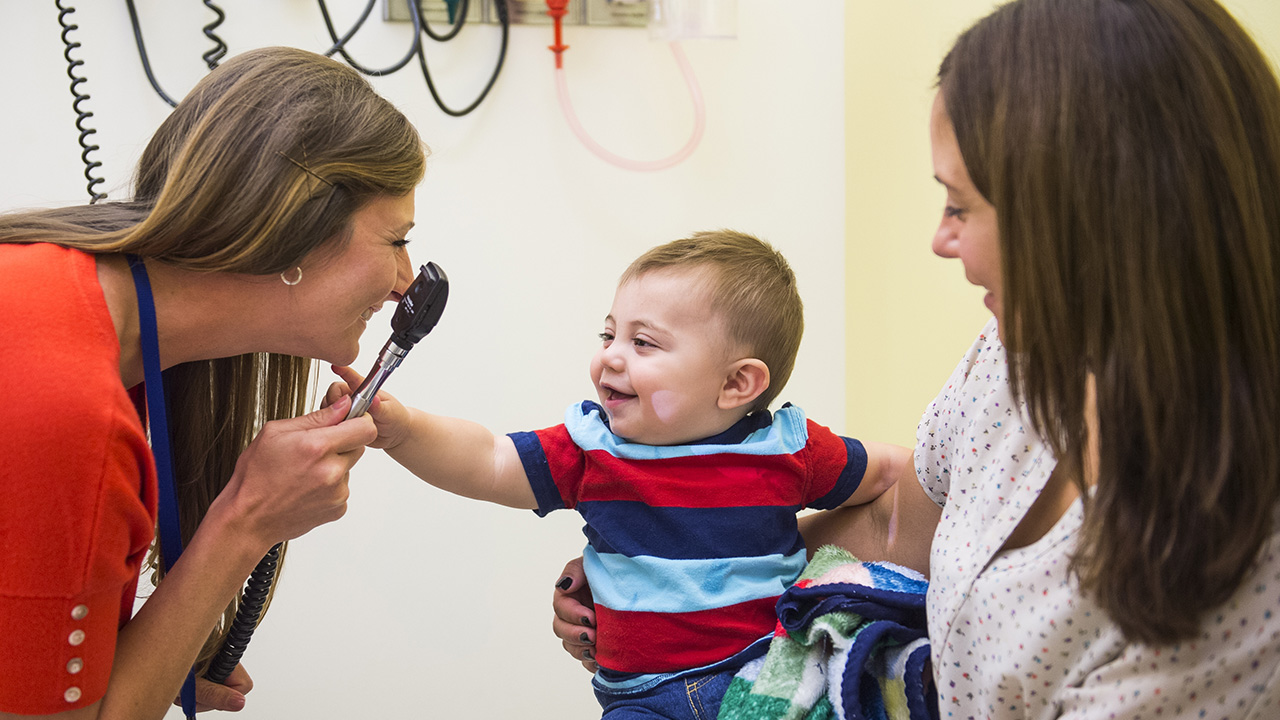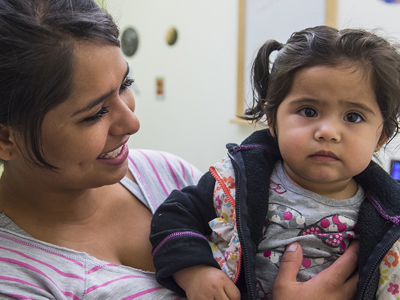- Doctors & Departments
-
Conditions & Advice
- Overview
- Conditions and Symptoms
- Symptom Checker
- Parent Resources
- The Connection Journey
- Calm A Crying Baby
- Sports Articles
- Dosage Tables
- Baby Guide
-
Your Visit
- Overview
- Prepare for Your Visit
- Your Overnight Stay
- Send a Cheer Card
- Family and Patient Resources
- Patient Cost Estimate
- Insurance and Financial Resources
- Online Bill Pay
- Medical Records
- Policies and Procedures
- We Ask Because We Care
Click to find the locations nearest youFind locations by region
See all locations -
Community
- Overview
- Addressing the Youth Mental Health Crisis
- Calendar of Events
- Child Health Advocacy
- Community Health
- Community Partners
- Corporate Relations
- Global Health
- Patient Advocacy
- Patient Stories
- Pediatric Affiliations
- Support Children’s Colorado
- Specialty Outreach Clinics
Your Support Matters
Upcoming Events
Colorado Hospitals Substance Exposed Newborn Quality Improvement Collaborative CHoSEN Conference (Hybrid)
Monday, April 29, 2024The CHoSEN Collaborative is an effort to increase consistency in...
-
Research & Innovation
- Overview
- Pediatric Clinical Trials
- Q: Pediatric Health Advances
- Discoveries and Milestones
- Training and Internships
- Academic Affiliation
- Investigator Resources
- Funding Opportunities
- Center For Innovation
- Support Our Research
- Research Areas

It starts with a Q:
For the latest cutting-edge research, innovative collaborations and remarkable discoveries in child health, read stories from across all our areas of study in Q: Advances and Answers in Pediatric Health.


The Many Benefits of Well-Child Visits

Well-child visits, or wellness checks, are your child’s routine health checkups with their pediatrician. These visits help you keep your child up to date on the vaccinations they need for daycare or school and generally serve as a way for you to ensure your child is happy, healthy and thriving. Dan Nicklas, MD, a pediatrician at Children’s Hospital Colorado’s primary care-focused Child Health Clinic, says well-care visits are important for children of all ages and their families.
“Regular visits help us get to know you,” he says. “We do a physical check of your child — blood pressure, eyes, ears and all that — to make sure all systems are working, so to speak. But we also check in and touch base on other things, like family life, school and behavior. We really serve as a sounding board and an educational resource for both you and your child.”
That kind of relationship can help pediatricians give quality care as your child ages. In other words, if your pediatrician knows what your child is like when they’re healthy, they can offer better care when something is wrong.
Here, Dr. Nicklas and adolescent medicine specialist Amy Sass, MD, break down what you can expect from well visits, what pediatricians focus on by age and why these visits matter.
Ages 0 to 4
Babies need a lot of visits during the first year of their life. After that, trips to the pediatrician will start to slow down but are still just as important. During these early years, your doctor will make sure your child is hitting development milestones and getting important vaccinations, while also helping you navigate parenthood.
Vaccinations
“A majority of vaccines happen during this time,” Dr. Nicklas says, “and those are essential for your child’s ongoing immunization against preventable diseases like the flu, measles, whooping cough and COVID-19. It’s important to follow the recommended vaccine schedule, which is designed to give your child the best protection possible.”
Your pediatrician is a great resource for answering any questions you may have about vaccines, including COVID-19 vaccines in children.
Growth and development
Your child is learning and growing so much during this time, and your pediatrician uses well-care visits to make sure your child’s development stays on track. Height and weight checks are crucial, and your pediatrician can offer nutrition recommendations when necessary. Dr. Nicklas says these thorough physical checkups are important because they help your doctor identify any potential problems early on.
Your child’s pediatrician will also check their hearing and vision during these visits. Formal hearing tests start right from birth, while vision tests begin around 3 years of age. This allows your child’s team to address any concerns early.
This stage of life also marks the beginning of dental care. Dr. Nicklas recommends establishing a “dental home,” with a family dentist around 1 year of age, so that kids can start forming relationships, begin to learn the importance of tooth hygiene and health, and act against early tooth problems, such as tooth decay. Even though your child will only have baby teeth at this age, it’s still important to care for them, as infections in baby teeth can extend down into adult teeth.
Behavior and parenting
This stage of parenting can be tough. “Your child is learning to communicate, so managing behavior and setting expectations is really important,” says Dr. Nicklas. Your pediatrician can answer questions and offer advice on the types of discipline that might work best for your child. They can also provide information on everything from baby-proofing your home to potty training to the recommended amount of screen time.
Social and emotional wellness
Social and emotional well-being is just as important for babies and toddlers as it is for teens. That’s why throughout this period of life, your pediatrician will use the “Ages and Stages Questionnaire” to check on your little one’s development in this area. This screening occurs at 6 months, 18 months and 30 months. It’s during these screenings that a provider might recognize signs of developmental delays or neurodiverse conditions, such as autism.
Ages 5 to 8
According to Dr. Nicklas, wellness visits for school-age children are focused on identifying potential challenges and helping them reach their full potential in all aspects of life, from sports and school to mental health.
School
In addition to growth and development, success in school is a top priority. Your pediatrician can provide information on how much sleep your child needs each night and how much exercise they should get — both of which can affect how well they do in school.
This is also the age when kids start to get more involved in physical activities, through sports leagues and even school recess. Your pediatrician will start to ask questions about family history and personal interest to ensure your child will be safe when engaging in sports. For example, if kids have a history of concussions, heart issues or a genetic condition, your pediatrician might recommend a modified approach to physical activity.
Screening for disorders and health issues
Your pediatrician is also on the lookout for any health concerns that might appear around this age that could make school harder for your child. This can include minor conditions or more serious conditions like asthma or heart issues. Pediatricians are also focused on nutrition, and they can provide information on how to work balanced meals into your family’s diet.
“Childhood obesity can lead to secondary problems later like high blood pressure and diabetes,” says Dr. Nicklas, “so we pay close attention to that.”
At this age, your child’s dental screenings will become more regular. They’ll fall into the typical six-month flow of appointments and cleanings that will last throughout their lives. Meanwhile, your child’s school will likely begin providing additional hearing and vision screenings once they are old enough to attend (they’ll still get these at checks at wellness visits, too). Your child’s pediatrician can perform additional tests if the school flags any concerns. This will continue through adolescence.
Mental health screening
When your child reaches this stage of life, your pediatrician will continue offering psychosocial screeners at each well-care visit. The screener checks for the well-being of your entire family unit to identify things that could impact your child’s emotional health, including resource needs, food, housing, transportation and more.
Ages 9 to 12
Though the timeline of puberty can look different for every child, many begin the process during this period of early adolescence. This time can be a little scary for both kids and their parents, but our pediatricians see puberty as an incredibly exciting time for kids and will help them navigate the physical and emotional changes that come with getting older.
And while partnership with parents remains critical to your child’s care, at this age, your pediatrician may also begin setting aside a few minutes of one-on-one time with your child. This gives kids a chance to talk about sensitive subjects and provides a sense of control over their own health.
These new things can be intimidating to kids, and as healthcare discussions and exams evolve, our pediatricians take care to make extra space for fears and sensitivities, so your child and you feel comfortable throughout this next stage of care.
All about puberty
“Have open discussions with your child about what’s going on with their body,” says Dr. Nicklas. “We try to help them understand that it’s how bodies typically develop. It’s important to normalize it, and we can help you with that.”
According to Dr. Sass, who specializes in adolescent medicine, some kids in this age range may be well into puberty, which lasts between four and five years, while others may be just getting started. This time comes with many physical changes, such as breast development, armpit and pubic hair, and new odors. One of the biggest changes kids will start experiencing is menstruation. In fact, Dr. Sass says, the national average for the start of menstruation is 12.5 years. Regular well-care visits ensure that your child has support from a variety of sources when it comes to navigating early periods and any irregularities that may come up.
This time can also bring emotional changes, especially as kids begin learning more about reproduction, sexuality, and gender identity and expression. Your pediatrician can play a pivotal role in answering questions and providing objective advice.
More vaccinations
Your child will also need another round of important vaccinations including the tetanus, diphtheria and acellular pertussis, or TDAP, shot; the meningococcus vaccine; and the HPV vaccine, which protects against cancer.
Care for mental well-being
When your child reaches 11 years of age, their pediatrician will begin using a nine-question patient health questionnaire (known as PHQ-9) to check on their emotional well-being and screen for symptoms of depression.
Ages 13 to 18
Once kids reach their teen years, some aspects of care, such as assessing behavior, development and nutrition, become just as important as when they were toddlers. At this age, kids are continuing to progress through puberty, as well as dealing with a whole host of new pressures, from social media and relationships to preparing for increasing independence.
Physical evaluations
While pediatricians can offer sports physicals throughout a child’s life, Dr. Nicklas says this is most needed once your child reaches high school. Again, they’ll consider family history and medical history to ensure your child can engage in sports safely.
This is also a time when kids might have a growing list of questions related to their reproductive and sexual health. Their pediatrician can not only answer questions, but address concerns, such as infections, pain, irregularities and more.
Evaluating social and emotional needs
Your child is likely starting to want increased independence, but it is helpful to remain connected to them so they feel safe discussing things that may be affecting their mental health. Your pediatrician can be a great resource for you to get a better understanding of what that might be — things like pressure at school and anxieties around social media. They’ll continue conducting the PHQ-9, evaluate whether additional mental health screenings might be right for your child and offer you mental health resources and referrals if needed.
Education on healthy lifestyle choices
Curiosity or pressure from friends can often lead teens to experiment with things like cigarettes and vaping. Well-care visits with your pediatrician may offer an opportunity to help your child understand the health risks associated with those behaviors. Your pediatrician can also help answer other lifestyle questions you might have — like how to talk about sex, model body positivity, add physical activity into your family’s routine, and create nourishing, balanced meals.
“When I talk with adolescents, we are really talking about how they're functioning in their home environments, at school and in their communities,” Dr. Sass says. “We talk about things that are going well and challenges they may be experiencing. This may include mental health problems, learning difficulties, nicotine use, substance use, intimate behaviors and risk of sexually transmitted infections, violence, bullying and more. Teens are often open to nonjudgmental advice and willing to consider ways to change their risk behaviors. We work together to determine a treatment plan.”
The value of building a relationship with your provider
Over the course of your child’s life, from birth through adolescence, your pediatrician can serve as a partner to you and your family. They can offer evidence-based advice, ensure your child is thriving physically, socially and emotionally, and ease the challenges that can come with growing up. Forming a lasting relationship with a provider that can see your family through these important milestones can help ensure your child is getting the best care possible.



 720-777-0123
720-777-0123






